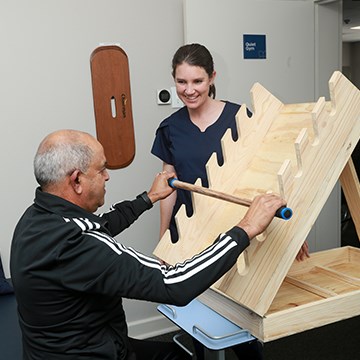Care Worker job vacanvies

REQUIREMENTS, EXPERIENCE AND QUALIFICATIONS/TRAINING
Care Worker job vacanvies Care Worker certificate
2 Years or greater trip as a Care Worker inside a bodily rehabilitation surroundings fine
KEY COMPETENCIES
Communication
Collaboration
Analysis & selection making
Safety and Quality
Initiative-taking
Flexibility
Minimum Salary: R5 902.21 Cost to Company (including benefits)
Should you no longer acquire a response inside two weeks after the closing date, kindly receive that your software has no longer been successful.
The Complete Guide to Care Worker Duties: Roles, Responsibilities, and Essential Skills
Caring for others is more than a job; it’s a calling. Care workers play a vital role in helping vulnerable people live better lives. They support the elderly, disabled, and those with long-term illnesses. With the population getting older and healthcare needs growing, the demand for caring professionals is rising fast. In this guide, we’ll explore what care workers do, the skills they need, and how they make a real difference every day.
Understanding the Role of a Care Worker
Defining a Care Worker and Their Scope of Work
A care worker provides assistance to people who can’t manage everyday tasks alone. They work in homes, care homes, hospitals, and community centers. Their main goal? Improve quality of life. Care Worker job vacanvies
Care workers aren’t the same as doctors or nurses. They focus on daily support, personal care, and emotional comfort. Sometimes they are called healthcare assistants or personal care assistants, but their job descriptions often overlap.
The Importance of Compassion and Empathy
Good care isn’t just about tasks — it’s about connecting with people. Showing kindness and understanding helps clients feel safe and valued. Studies show patients who experience compassionate care are happier and healthier. Think about the emotional side: a simple smile or listening ear can make a big difference. Care workers build trust by being empathetic, which leads to better care outcomes.
Qualifications and Training Requirements
Most care jobs ask for certain certifications. You might need a health and social care qualification or completing a mandatory training course. Many courses cover first aid, safeguarding, and infection control. Ongoing learning keeps skills sharp. Regulatory bodies like the Care Quality Commission (CQC) set standards for care workers. Staying updated ensures quality service and safety.
Key Responsibilities of a Care Worker
Assisting with Activities of Daily Living (ADLs)
One key part of the job involves helping clients with basic tasks. These include bathing, dressing, eating, and using the toilet. Respect and dignity are essential when assisting with these chores. Remember, dignity protects confidence and independence. A care worker’s gentle touch and respectful attitude can make these tough moments easier.
Providing Personal Care and Support
Personalized support means tailoring help to each individual’s needs. Care workers assist with mobility, remind about medication, and support through emotional struggles. For example, creating a care plan that fits a client’s routines helps them stay comfortable and in control. Care Worker job vacanvies
Monitoring and Reporting Patient Condition
Care workers keep a close eye on their clients’ health. They check vital signs like blood pressure or blood sugar levels. Accurate records and honest communication with healthcare teams are crucial. By noting changes early, care workers can prevent serious health issues and ensure prompt action.
apply here
Ensuring a Safe and Comfortable Environment
Safety comes first. Care workers follow safety protocols to prevent falls, accidents, and infections. They clean and disinfect work areas and ensure equipment is safe. Preventing falls involves removing hazards, such as loose rugs, and supporting clients when moving. A safe space boosts confidence and independence.
Supporting Mental and Emotional Wellbeing
Helping clients stay mentally active and emotionally stable is just as important as physical care. Engaging in conversations, hobbies, or simple activities reduces loneliness. Active listening shows clients they matter. Building rapport creates a trusting relationship that encourages open communication.
Emergency Response and First Aid
In emergencies, quick action can save lives. Care workers learn basic first aid, CPR, and emergency procedures. Many certifications are available to prepare them for accidents or sudden health issues.
Knowing how to respond quickly keeps clients safe and demonstrates professionalism.
Skills and Qualities Essential for Care Workers
Communication and Interpersonal Skills
Clear, kind communication builds strong relationships. Good listening is vital and helps understand clients’ needs. Non-verbal cues — like facial expressions — matter just as much. Sharing information effectively with colleagues ensures everyone is on the same page. Care Worker job vacanvies
Physical Endurance and Flexibility
The role can be physically demanding. Tasks include lifting, repositioning, and standing for long periods. Staying fit helps manage these chores safely. Practice proper body mechanics and build strength through regular exercise to avoid injury. Care Worker job vacanvies
Patience and Resilience
Care work can test your patience. Some clients may be difficult or upset. Staying calm and resilient keeps care quality high. Resilience means bouncing back after tough days. It’s an essential trait that keeps care workers motivated and compassionate.
Attention to Detail and Organizational Skills
Care workers juggle many responsibilities. Keeping thorough records and managing schedules is key. Being organized helps avoid mistakes and ensures nothing gets missed. Small details, like medication times, matter a lot. Care Worker job vacanvies
Cultural Competency and Respect for Diversity
People come from many backgrounds. Respectful care means understanding each individual’s culture and preferences. It fosters trust and better care. Being culturally aware enriches relationships and improves client satisfaction. Care Worker job vacanvies
Challenges Faced by Care Workers and How to Overcome Them
Emotional and Physical Strain
Caring can be exhausting. Burnout is common without proper self-care. Regular breaks, exercise, and talking with peers help keep stress at bay. Seeking mental health support when needed is vital to stay strong and compassionate. Care Worker job vacanvies
Managing Difficult Behaviors
Some clients may have challenging behaviors. Use calm, respectful communication. De-escalation techniques are useful. Debrief with colleagues after tough calls to share experiences and find support. Care Worker job vacanvies
Navigating Ethical Dilemmas
Care workers face situations that test their morals. Respect confidentiality and patient rights at all times. For example, balancing honesty with privacy requires thoughtful judgment. Care Worker job vacanvies
Staying Up-to-Date with Regulations
Regulations change often. Regular training keeps skills current and ensures compliance. Staying informed helps avoid mistakes and maintain high standards.
Conclusion
Care worker duties are diverse and essential. From personal support to emotional care, their role impacts lives deeply. Success in this field comes from compassion, professionalism, and a commitment to learning. If you’re drawn to helping others, this career offers meaningful rewards. Stay dedicated, keep learning, and make a real difference every day. Care Worker job vacanvies





